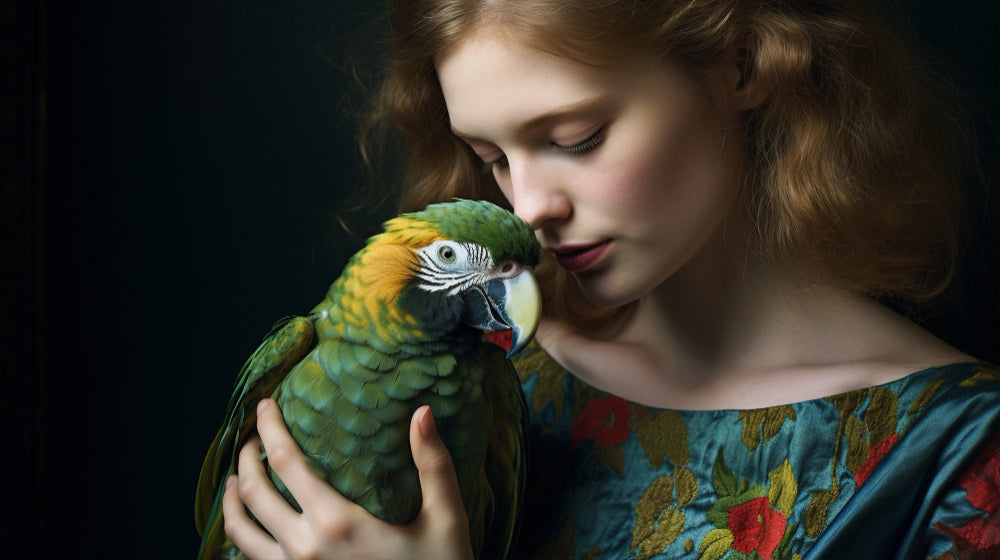A Guide to Caring for Your Feathered Friend | How to Take Care of a Parrot at Home
Parrots are fascinating and intelligent birds that make wonderful companions. If you've decided to bring a parrot into your home, it's essential to understand their unique needs and provide them with the proper care and attention. In this guide, we'll explore the key aspects of taking care of a parrot to ensure a happy and healthy life for your feathered friend.
Choose the Right Species
Parrots come in various species, each with its own characteristics and care requirements. Before bringing a parrot home, research different species to find one that matches your lifestyle and commitment level. Popular choices include the African Grey, Cockatiel, Budgerigar (Budgie), and Amazon Parrot.
Create a Comfortable Living Environment
Parrots need spacious cages that allow them to spread their wings and move around comfortably. The cage should be placed in a well-lit and draft-free area, away from direct sunlight and kitchen fumes. Provide perches of different sizes and materials to promote foot health, and include toys to keep them mentally stimulated.
A Nutritious Diet
A balanced and varied diet is crucial for your parrot's well-being. A high-quality pellet diet supplemented with fresh fruits, vegetables, and occasional treats like nuts or seeds is ideal. Avoid feeding them foods that are toxic to birds, such as chocolate, caffeine, and avocado. Fresh water should always be available.
Regular Veterinary Check-ups
Just like any other pet, parrots require regular veterinary check-ups. Find a veterinarian experienced in avian care and schedule annual examinations to monitor your parrot's health. Watch for signs of illness, such as changes in behavior, droppings, or feather condition, and seek professional advice if needed.
Social Interaction and Mental Stimulation
Parrots are highly social animals that thrive on interaction and mental stimulation. Spend quality time with your parrot by talking to them, offering toys, and teaching them new tricks. Consider getting more than one parrot if your lifestyle allows, as they often enjoy the company of their own kind.
Grooming and Hygiene
Maintaining proper hygiene is essential for your parrot's health. Regularly clean their cage, change the water, and provide opportunities for bathing. Some parrots enjoy mist baths, while others prefer a shallow dish of water. Keep an eye on their beak, nails, and feathers, and consult a vet or an experienced groomer for assistance.
Respect Their Natural Behavior
Understanding and respecting your parrot's natural behavior is crucial for a harmonious relationship. Parrots may be noisy, messy, and demanding, so be prepared for these characteristics. Training can help manage undesirable behaviors, but it's essential to be patient, and consistent, and use positive reinforcement.
Conclusion
Taking care of a parrot requires dedication, time, and a genuine love for these intelligent birds. By providing a comfortable environment, a nutritious diet, regular veterinary care, and plenty of social interaction, you'll ensure that your feathered friend leads a happy and healthy life as a cherished member of your family.

